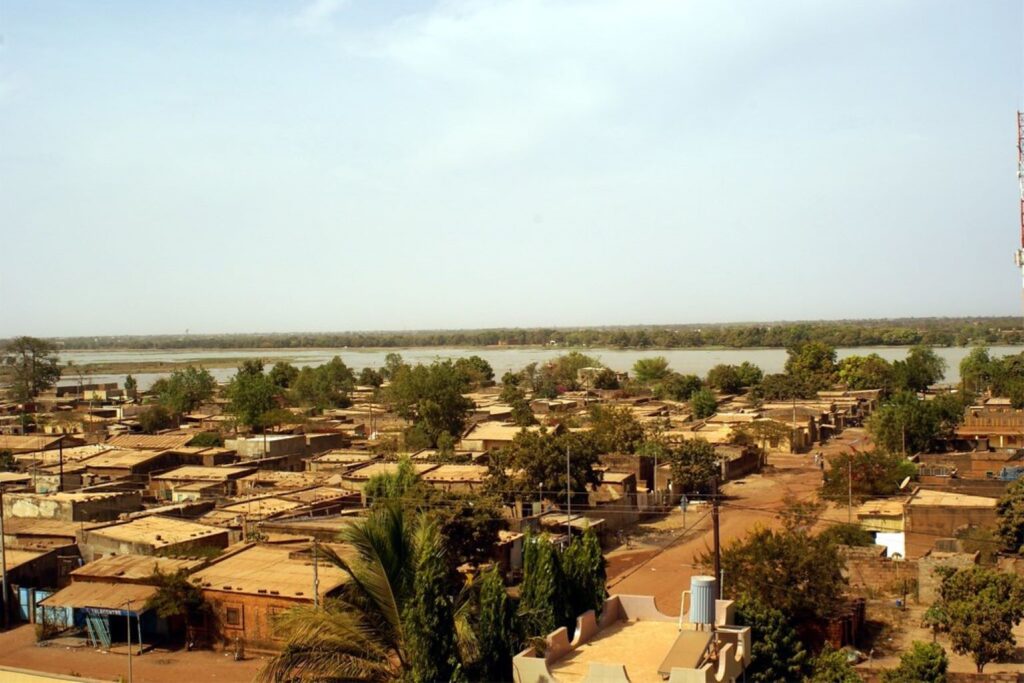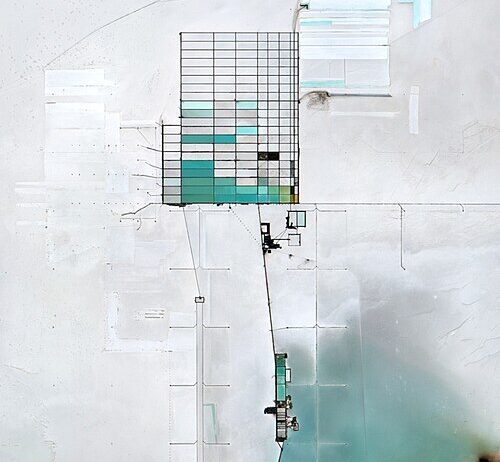Burkina Faso’s rich history has been marked by violent fluctuations between military juntas and pushback from civil society, resulting in a state that lies somewhere in between. Modern Burkina Faso’s leadership nominally supports civil liberties and political freedoms but has repeatedly attempted to undermine civil society organizations’ (CSOs) political activities. The growing role of the internet and social media in civil society has heightened tensions between the two groups. The government’s use of internet shutdowns has repressed CSOs’ abilities to organize, hampering human rights and holding Burkina Faso’s future in the balance.
Burkina Faso’s political history is defined by the interactions between the country’s civil society and government. The country’s robust civil society—considered an anomaly in Western Africa—has clashed with a government intent on using internet shutdowns as a tool of repression. The recent coup in Burkina Faso and the response from civil society groups, neighbors, and international actors indicate a precarious future for its citizens.
Civil Society in Burkina Faso (1960-2014)
The strength of Burkina Faso’s civil society sets the country apart from its neighbors. Since gaining independence from France in 1960 as The Republic of Upper Volta, Burkina Faso’s CSOs and political parties have remained prominent throughout periods of military rule, popular insurrection, and democratic elections. The coup in 1983 ushered in Captain Thomas Sankara’s revolutionary but short period of leadership, defined by a progressive agenda involving mass vaccinations, infrastructure improvements, and policies that strengthened women’s rights. Sankara renamed the country Burkina Faso, meaning “land of the proud and honest people.” The coup in 1987 saw Blaise Compaoré, Sankara’s vice president, use the military to overthrow and execute his former boss, claiming that Sankara’s revolutionary rhetoric and actions had compromised relations with France and Côte d’Ivoire. After his 1991 electoral victory under the Congress for Democracy and Progress (CDP), Compaoré revised Burkina Faso’s constitution to enshrine freedom of speech, press, and religion. This period saw Burkina Faso’s first multiparty elections, the growth of democratic institutions, and the establishment of a parliamentary system. However, Compaoré also used his personal secret service organization, the Regiment of Presidential Security (RSP), to repress opposition groups that challenged his legitimacy. Compaoré also structured Burkinabè politics to ensure the CDP’s victory and skirted previously established presidential term limits, which were enshrined in the constitution until 2014.
To prevent Compaoré from extending his reign, Burkinabé civil society actors, including organized labor, youth movements, and opposition groups—such as the Sankarist Movement, Union for Progress and Reform, and La Balai Citoyen—intervened in the 2014 Burkinabé uprising. This uprising consisted of a million-strong march in October 2014 that culminated in the burning of the National Assembly, Campaoré withdrawal of the amendment that would extend his term limits, and his resignation from office before the end of his term. In addition, mediation efforts by the Burkina Bar Association and the Burkina Faso Youth League between the military and opposition parties prevented violence against the demonstrators. Burkinabé civil society succeeded again by preventing a subsequent coup attempt by the RSP to reinstate Compaoré and helped rid the country of the once-feared RSP in the process. The 2014 Burkinabé uprising ushered in a short-lived window of political freedom and advanced democratic norms such as election observation and civic education.
Governmental Overreach and Public Protest
The legacy of activism that permeates Burkinabé civil society powers its consistent and effective voice against corruption, poverty, and governmental abuses of freedom. Today, civil society continues to play a sizable role in Burkina Faso, with approximately 17,000 non-governmental organizations engaging in basic service delivery and humanitarian assistance. CSOs have also been instrumental in the COVID-19 pandemic response and in violence prevention. CSOs are free to engage in politics and advance norms such as advocacy, lobbying, petitions, demonstrations, and campaigns to raise awareness of important issues. However, the proliferation of CSOs has created competition among them, resulting in weakened coalitions and uncooperative collective action efforts.
Social media also influences Burkina Faso’s civil society. The country has roughly two million social media users accounting for nearly 10 percent of the population, with 99 percent of users accessing social media platforms such as Facebook and Instagram with their mobile devices. This figure is rising, having increased 25 percent from 2020 to 2021.
As many other African countries have done, Burkina Faso’s government has implemented internet shutdowns and social media blackouts to curtail popular protests. During the attempted coup in 2015, the RSP attempted to shut down private radio, television, and news sources. The government has attempted to weaken the traditionally strong media system by criminalizing the dissemination of “false information” or any sources that could be construed as inciting disorder or insecurity, paving the way for digital repression and the harassment of journalists. In 2018, authorities arrested a social activist for criticizing the state security system in a Facebook post.
Moreover, the government of Burkina Faso has used the global war on terror to securitize the state and has invited external actors to help quell the threat of militants linked to the Islamic State, al-Qaeda, and other militants in the Sahel region for years. Former President Roch Marc Christian Kaboré has been widely criticized for his inability to keep the country safe, as over 1.4 million people were displaced and approximately 2000 citizens were killed from these militant groups’ violent campaigns in 2021. Kaboré’s misuse of government power to combat the Islamist insurgent movement has resulted in human rights violations by state security forces, including mass executions of those suspected of supporting Islamist armed groups. Operation Barkhane, a French counterinsurgency mission in the Sahel targeting Islamist militants, set the stage for a new round of government abuses.
In November 2021, a French military convoy was blocked by Burkinabé citizens protesting “the inability of Burkinabé and international forces to prevent rising violence by Islamist militants” that has displaced over a million people from their homes. Troops from the former colonial power fired warning shots, and local Burkinabé troops used tear gas. In response to the demonstrations, the government suspended mobile internet on November 14, 2021, for more than a week, citing security concerns amid the political unrest. Protestors, beyond their frustration with ongoing violence, obstructed military movements because they believed a conspiracy theory that had spread over social media that the French were aiding terrorists. Burkina Faso’s minister of defense defended the shutdown by claiming the use of social networks was an obstacle to security. This event enabled the state to clamp down on social media and messaging applications to suppress future protests. After the internet blackout was lifted, Burkina Faso’s civil society increased demands for President Kaboré’s resignation, citing his failure to stem the violence from local offshoots of globalized terror networks. The president’s opponents criticized the internet shutdown as an assault on individual rights guaranteed by the constitution.
The Coup Against Kaboré
In January 2022, President Kaboré was ousted in a military coup by the Movement Patriotic (MPSR), which closed the country’s borders, suspended the constitution, and seized control of the country. Under the leadership of Lt. Col. Paul-Henri Sandaogo Damiba, the MPSR claimed that the worsening security situation, growing numbers of displaced persons, and the government’s inability to defeat Islamist militant groups justified Kaboré’s removal from office.
Many in Burkina Faso welcomed the military coup, but regional governing bodies, including the Economic Community of the West African States and the African Union, have condemned it. While the coup deposed a democratically elected government, Damiba and the MPSR have received the support of those in Burkina Faso frustrated by the country’s long-standing corruption and security failures. Damiba has promised a return to democracy but has not set a timetable for elections to be held. The immediate need for peace and victory over armed groups has taken precedence over democracy in the minds of many Burkinabé. Although Burkina Faso’s civil society opposed Kaboré and sought changes, it remains unclear how long it will continue to support this new military leadership.
Lt. Col. Dambiba and the Future of Burkina Faso
The recent coup has thrown Burkina Faso back into the cycle of alternating power between military and democratic control. CSOs such as La Balai Citoyen and Sauvons le Burkina Faso maintained that unity and safety could only be achieved once Kaboré was replaced. Damiba has suspended constitutional rule and curtailed civil liberties and freedom of movement. If Damiba begins to mirror leaders of the past by repressing opposition groups or shutting down the internet, he may erode the initial goodwill he fostered with the Burkinabé people with his muscular response to terrorism. The question remains whether Burkina Faso’s strong civil society will again push back against an undemocratic regime, or merely wait to observe how the military responds to the unstable security situation.
Burkinabé civil society is proud of its history as “the land of honest men” and its victories over corrupt leaders. It has benefited from new tools of organizing such as social media and the internet to gain influence and popular support. The recent military coup is the culmination of years of frustration with inept leadership and an unstable security situation. Many Burkinabé view the military’s takeover as an acceptable short-term fix for the moment, but the future of the country will still be determined by its strong civil society, which has historically been a resilient and democratizing force for the country.
Works Cited
California Newsreel—THOMAS SANKARA: THE UPRIGHT MAN,” Accessed August 17, 2022, https://newsreel.org/video/THOMAS-SANKARA-THE-UPRIGHT-MAN
Mathieu Bonkoungou, “Burkina Faso Salutes ‘Africa’s Che’ Thomas Sankara,” Reuters, October 17, 2007. https://www.reuters.com/article/us-burkina-sankara/burkina-faso-salutes-africas-che-idUSL1757771220071017
Nina-Kathrin Bertrand and Eloïse Wienkoop, “Popular Resistance to Authoritarian Consolidation in Burkina Faso,” Carnegie Endowment for International Peace, May 16, 2016, https://carnegieendowment.org/2018/05/16/popular-resistance-to-authoritarian-consolidation-in-burkina-faso-pub-76363
“Burkina Faso Government Disbands Elite Unit Behind Coup,” Reuters, September 25, 2015, https://www.reuters.com/article/us-burkina-army-idUSKCN0RP2C520150925
“Burkina Faso,” ICNL, Accessed August 17, 2022, https://www.icnl.org/resources/civic-freedom-monitor/burkina-faso
“Enabling Environment National Assessment: Burkina Faso,” Civicus,Accessed August 17, 2022, https://www.civicus.org/index.php/eena-country/burkina-faso
“Digital 2021: Burkina Faso,” DataReportal, Accessed August 17, 2022, https://datareportal.com/reports/digital-2021-burkina-faso
“Media Coverage Curtailed after Burkina Faso Coup,” IFEX, September 17, 2015, https://ifex.org/media-coverage-curtailed-after-burkina-faso-coup/
“Burkinabe Legislative Threat to Press Freedom Must Be Declared Unconstitutional,” Reporters Without Borders, Accessed August 17, 2022, https://rsf.org/en/burkinabe-legislative-threat-press-freedom-must-be-declared-unconstitutional
“Burkina Faso Authorities Arrest Activist for Critical Social Media Posting,” IFEX, June 23, 2018, https://ifex.org/burkina-faso-authorities-arrest-activist-for-critical-social-media-posting/
Declan Walsh, “Military Seizes Power in Burkina Faso.” The New York Times, January 24, 2022, https://www.nytimes.com/live/2022/01/24/world/burkina-faso-coup
“Burkina Faso Executions Prompt Broad Call for Inquiry,” Human Rights Watch, September 16, 2020, https://www.hrw.org/news/2020/09/16/burkina-faso-executions-prompt-broad-call-inquiry
“French Military Convoy Blocked in Burkina Faso by Protesters.” Reuters, November 20, 2021, https://www.reuters.com/world/africa/french-military-convoy-blocked-burkina-faso-by-protesters-2021-11-19/
Henry Wilkins, “Protesters, Angry at Insecurity, Call for Burkina Faso’s President to Resign.” Voice of America, November 29, 2021, https://www.voanews.com/a/protesters-angry-at-insecurity-call-for-burkina-faso-s-president-to-resign/6332258.html
“Burkina Faso Caught between Terror and Protests for Change,” DW, February 12, 2021, https://www.dw.com/en/burkina-faso-caught-between-terror-and-protests-for-change/a-59996109




